Eight recent NUHS graduates and students currently studying acupuncture, oriental medicine, chiropractic, and naturopathic medicine recently returned from a trip to China where they observed patient care at a Beijing hospital.
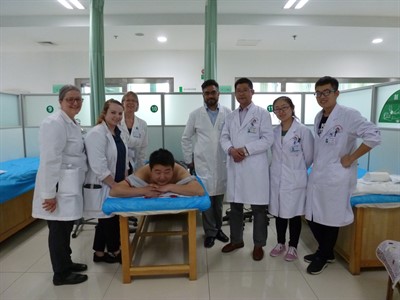 Dr. ƵhanXiang Wang, assistant dean of the acupuncture and oriental medicine program, developed the opportunity to broaden students’ understanding of oriental medicine and to give them the chance to see how differently Chinese hospitals operate. The hospital that the students visited is one of four affiliated with Beijing University of Chinese Medicine.
Dr. ƵhanXiang Wang, assistant dean of the acupuncture and oriental medicine program, developed the opportunity to broaden students’ understanding of oriental medicine and to give them the chance to see how differently Chinese hospitals operate. The hospital that the students visited is one of four affiliated with Beijing University of Chinese Medicine.
“The hospitals in Beijing use acupuncture and traditional Chinese Medicine in a much wider scope than in the United States,” Dr. Wang said. “Students had the chance to observe these modalities first hand and perform some treatments themselves.”
During the trip, students gave presentations about their fields and the curriculum they are taught at National University. Chiropractic medicine students, who are studying acupuncture, also performed adjustment demonstrations for doctors at the 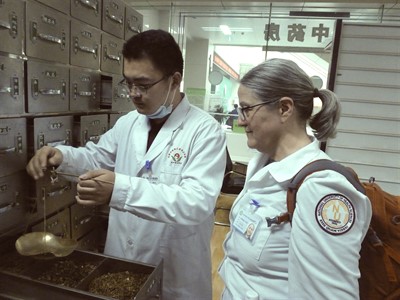 hospital.
hospital.
Students observed an average of 30 patients a day. Roxan Salvato, who recently graduated with her Master of Science in Oriental Medicine in spring, said some therapies rarely performed at American hospitals were done every day at the hospital. “We saw patients receive 40 minutes of acupuncture, 40 minutes of moxibustion, 40 minutes of tui na (massage), and sometimes 20 minutes of cupping added to their treatment all in one appointment,” she said.
For pain, NUHS students saw patients treated with hot wax and herbal steams as well as heated magnetic massage and ultrasound. “Patients were also treated every day until their pain was completely gone,” Salvato said.
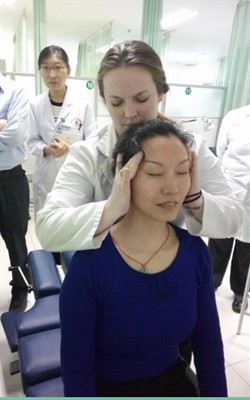 Nadene Johnson, a naturopathic medicine and oriental medicine student, said the trip greatly added to her knowledge base and experience as a future practitioner. She was able to observe many treatments including surgeries and also get some additional practice in cupping, gua sha, tui na (massage), and fire needling. “It was amazing to observe doctors needling, the technique they used, and their treatment goals,” she said.
Nadene Johnson, a naturopathic medicine and oriental medicine student, said the trip greatly added to her knowledge base and experience as a future practitioner. She was able to observe many treatments including surgeries and also get some additional practice in cupping, gua sha, tui na (massage), and fire needling. “It was amazing to observe doctors needling, the technique they used, and their treatment goals,” she said.
While there were some similarities between the Beijing University hospital and American hospitals, Johnson noted some key differences. For example, the Beijing University hospital had both a drug pharmacy and an herbal pharmacy. “The hospital was very new, less than two years old, and very clean and spacious. The atmosphere was quite serene, compared to our hospitals, which are chaotic,” she said.
Dr. Wang is already in the process of planning another trip next year. While the trip is currently optional, he would like to add it to the curriculum so students can get academic credit.
“Despite the great amount of planning and coordination necessary for this trip, the benefits to students in first-hand observation and knowledge sharing cannot be underestimated,” Dr. Wang said.

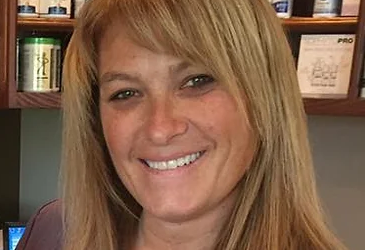
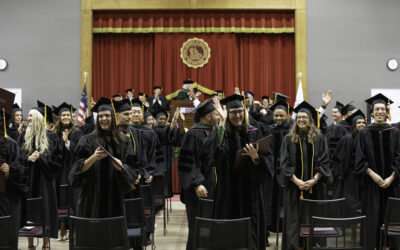
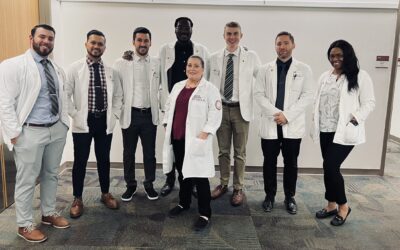
0 Comments